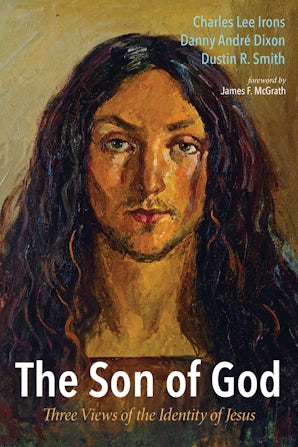I first read The Son of God: Three Views of the Identity of Jesus a few months ago, but recently discovered that it is now available online at academia.edu (LINK), so I thought it would be a good time to bring this interesting book to the attention of AF readers. From the forward of the book, by James McGrath, we read:
The Study of New Testament Christology—the depiction(s) of Jesus articulated by the authors of the New Testament—has never ceased to be of interest. But if it may not be true to say that there has been more interest in the subject in recent years, the past several decades have at the very least witnessed a burst of creativity in the field, with significant new and interesting proposals being offered by a range of scholars. This work has been stimulated in turn by an increased amount of attention to ancient Jewish sources, sparked by the publication of the Dead Sea Scrolls and other ancient literature that was previously neglected or unknown. This has allowed scholars to get a sense as never before of the Jewish context within which Jesus and his earliest followers reflected on who he was. (p. vii)
A bit later, McGrath relates:
The present volume is different from such other volumes in important ways. On the one hand, the contributors share a commitment to interpreting the Bible diligently and accurately, and allowing the evidence from the Bible to shape their views. On the other hand, the three christological viewpoints which the authors represent are only relatively rarely found within the same church setting. Trinitarianism, Arianism, and Socinianism are typically not found within the same denomination, much less within the same church, and more often than not, adherents to one of the viewpoints will regard the other views as anathema.
And so the fact that the authors are friends across such divides is an important message of the book, one which should not be missed. (pp. x, xi)
But, “the fact that the authors are friends”, does not diminish the passion and resolve that each author has for their respective position—this being evidenced by the clarity provided in their critiques of the opposing views.
Another unique aspect of the book, that I found to be quite valuable, is that each author provides precise definitions of the ‘labels’ given to the view that they defend—'Trinitarianism’, ‘Arianism’ and 'Socinianism’ (pp. xiii-xv).
I really enjoyed this book. The authors are competent and knowledgeable, providing a good defense of their respective views in a format that is concise and readable—without compromising the level of the content.
Hope others will take the time to read the tome, and then share some reflections…
Grace and peace,
David

No comments:
Post a Comment